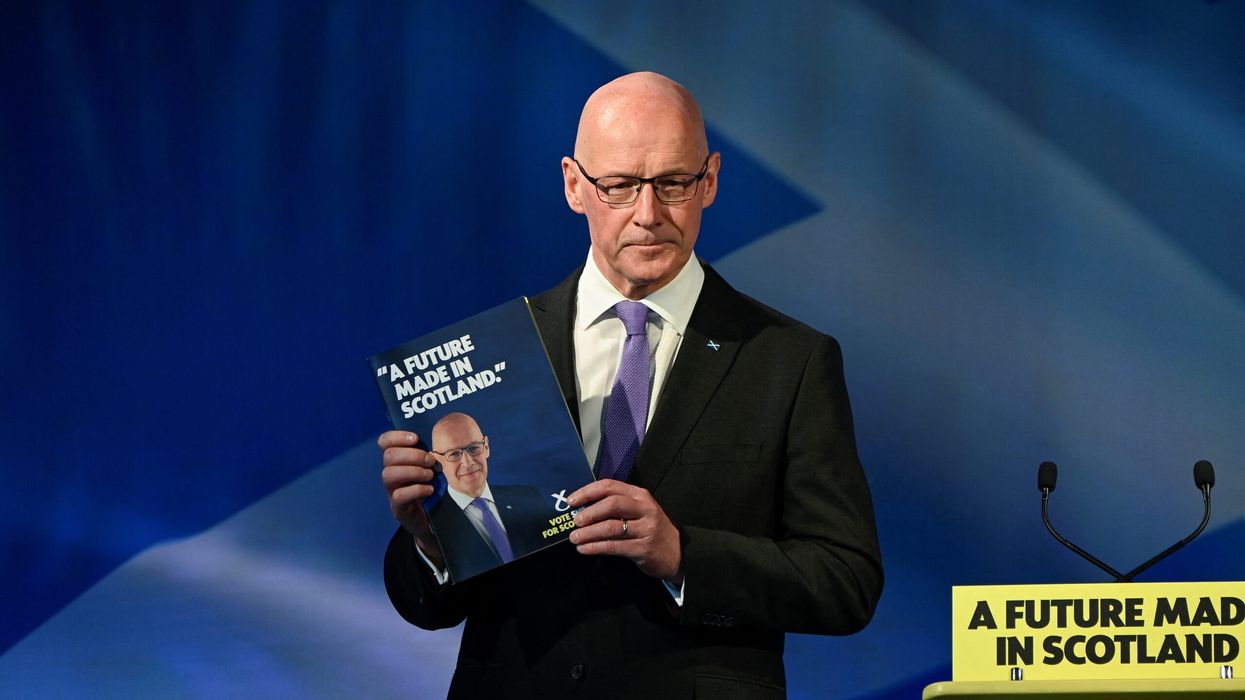Scotland's first minister John Swinney on Wednesday pledged to pursue another independence referendum if his party wins a majority of Scottish seats at the July 4 UK general election.
The Scottish National Party (SNP) is expected to lose several constituencies north of the English border to a resurgent Labour party, which is tipped to form the next government.
Fifty-seven seats are up for grabs in Scotland, meaning the SNP would need to win 29 to return more Scottish MPs to Westminster than the other parties combined.
The SNP manifesto unveiled Wednesday promises to "begin immediate negotiations with the UK government to give democratic effect to Scotland becoming an independent country" if it wins most seats.
Swinney confirmed at the launch that meant negotiating for another referendum, a vote that the main Labour and Conservative parties currently oppose.
They maintain that the issue of independence was dealt with during a referendum in 2014 when 55 per cent of voters in Scotland opted to remain part of the UK.
"What this election gives people the chance to do is to intensify the pressure to secure Scottish independence, and to bring that about by voting SNP," said Swinney.
He would not be drawn on what happens to the independence movement if the SNP loses its majority, as many polls are predicting.
An Ipsos poll published this week predicted that the SNP would win around 15 seats, down massively on the 48 it won at the last UK election in 2019.
Labour, virtually wiped out in Scotland in recent elections, is expected to stage a dramatic comeback in its former heartland as it rides a wave of anti-Conservative sentiment across the country.
The SNP has also dealt itself some self-inflicted wounds, while many voters appear weary with it after 17 years in power at Holyrood in Edinburgh.
The party has been engulfed in a financial scandal that led to the arrest of its former leader Nicola Sturgeon last year. Her husband and ex-chief executive of the party was later charged.
Swinney only became leader of the pro-independence party following Humza Yousaf's resignation in May after the SNP's power-sharing agreement with the Greens in Scotland collapsed.
Despite the decline in SNP support, the number of Scots favouring independence has held at around 40 per cent, according to surveys, providing the SNP with some comfort.
Its manifesto pledges that an independent Scotland would immediately seek to rejoin the European Union. (AFP)




